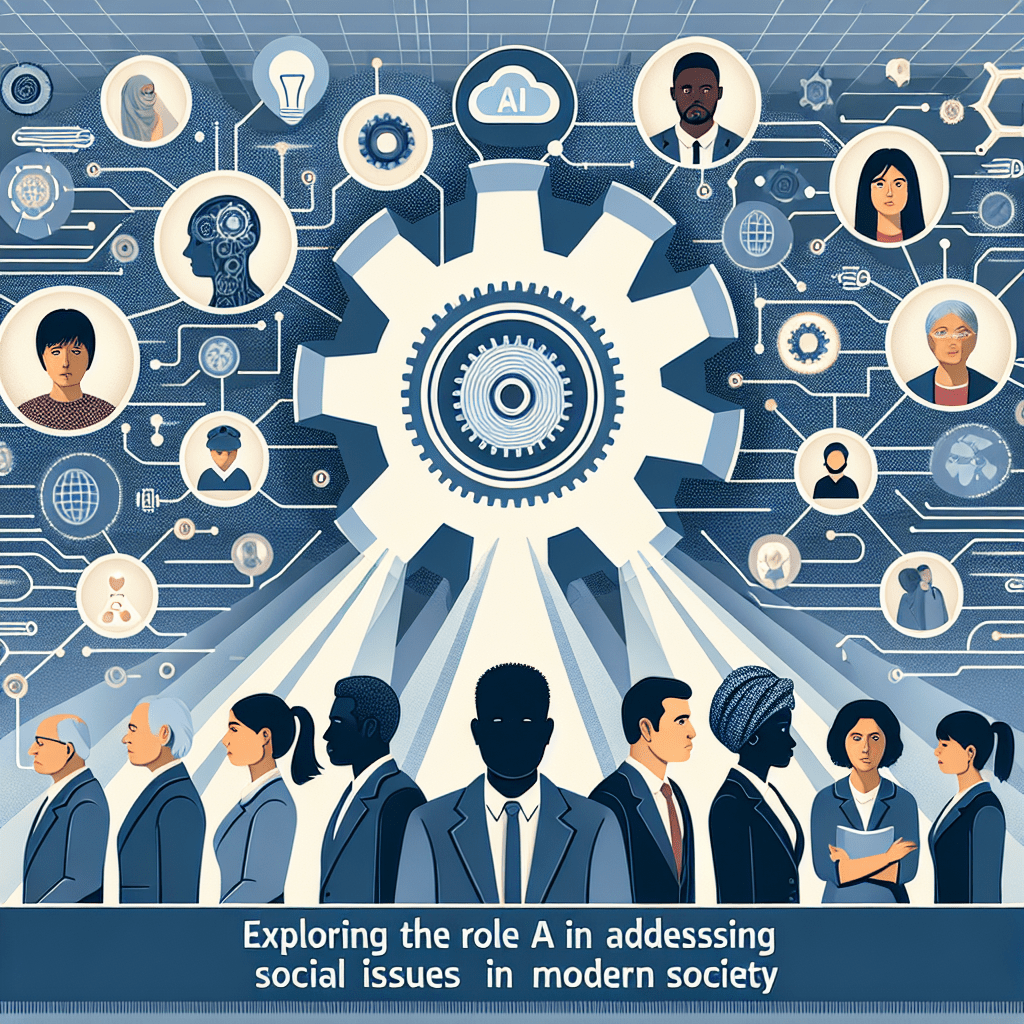Artificial intelligence (AI) has become an increasingly prominent technology in today’s society, with applications ranging from personal assistants like Siri and Alexa to advanced analytics and automation in industries such as healthcare and finance. However, one area where AI has the potential to make a significant impact is in addressing social issues that affect communities around the world.
One of the key ways in which AI can address social issues is through data analysis and predictive modeling. By analyzing large and diverse datasets, AI algorithms can identify patterns and trends that may not be immediately apparent to human researchers. For example, in the field of public health, AI can be used to analyze data on disease outbreaks and predict where future outbreaks are likely to occur, allowing for more targeted and effective interventions.
AI can also play a role in addressing poverty and inequality by improving access to services and resources. For example, AI-powered chatbots can provide information and support to individuals seeking assistance with housing, healthcare, or other social services. In addition, AI algorithms can help identify areas where resources are most needed and allocate them more efficiently.
Another way in which AI can address social issues is through the development of innovative solutions to complex problems. For example, AI-powered drones can be used to deliver medical supplies to remote or hard-to-reach areas, improving healthcare access for underserved populations. In addition, AI can be used to optimize transportation systems, reduce traffic congestion, and improve air quality in urban areas.
However, it is important to recognize that AI is not a panacea for all social issues. As with any technology, there are potential risks and challenges associated with the use of AI in addressing social problems. For example, there are concerns about bias and discrimination in AI algorithms, as they may reflect and perpetuate existing inequalities in society. It is important for developers and policymakers to address these issues and ensure that AI is used in a responsible and ethical manner.
In conclusion, AI has the potential to play a transformative role in addressing social issues in modern society. By leveraging the power of data analysis, predictive modeling, and innovative solutions, AI can help improve access to resources, enhance public health, and tackle complex challenges such as poverty and inequality. However, it is crucial to approach the use of AI in addressing social issues with caution and consider the potential risks and ethical implications. With careful planning and oversight, AI has the potential to become a powerful tool for creating positive social change.


